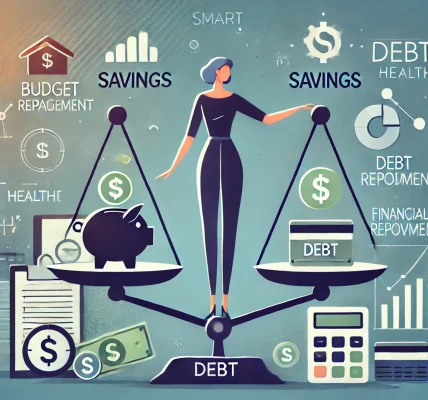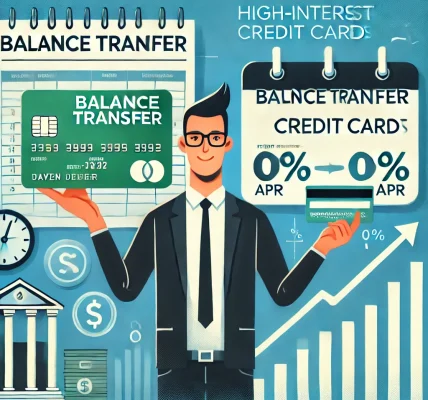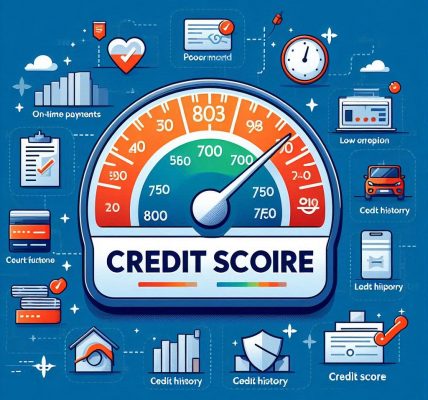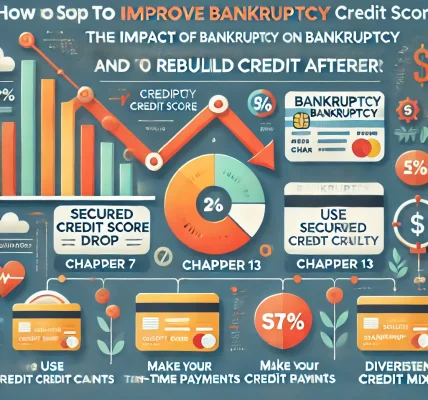Introduction
Debt relief scams are a growing concern, preying on individuals who are struggling financially and looking for a way out. While legitimate debt relief options exist, fraudulent companies often take advantage of vulnerable people by offering false promises, charging high fees, or even stealing personal information. Understanding how these scams work and learning how to spot them is crucial to protecting yourself from financial harm.
In this guide, we will explore the most common types of debt relief scams, red flags to watch for, and legitimate alternatives to help you manage your debt safely.
Understanding Debt Relief Scams
Debt relief scams come in different forms, but they typically share the same goal: to deceive consumers into paying for services that either don’t exist or don’t provide the promised results. Scammers often target individuals with high debt, poor credit scores, or those desperate for quick financial solutions.
Common Types of Debt Relief Scams
- Debt Settlement Scams
- These companies claim they can negotiate with creditors to reduce your debt for a fee but often fail to deliver on their promises.
- They may instruct you to stop making payments on your debt, which can lead to additional fees, penalties, and a damaged credit score.
- Debt Consolidation Scams
- Fraudulent companies offer fake consolidation loans that require upfront fees but never provide the promised loan.
- Scammers may also misrepresent the terms of a legitimate consolidation loan, leading to higher interest rates or hidden fees.
- Credit Repair Scams
- Companies may falsely claim they can remove negative but accurate items from your credit report for a fee.
- Some scammers create fake identities or engage in illegal practices that can get you into legal trouble.
- Government Debt Relief Scams
- Scammers pose as government agencies offering “official” debt relief programs that don’t actually exist.
- They may ask for personal information, such as your Social Security number, to commit identity theft.
- Fake Legal Help for Debt Lawsuits
- Scammers pose as legal professionals, offering to settle debt-related lawsuits in exchange for high fees.
- In reality, they do nothing, leaving you without representation and in a worse financial position.
Red Flags of Debt Relief Scams
Recognizing the warning signs of a scam can help you avoid falling victim. Here are some major red flags to watch for:
1. Guaranteed Debt Elimination
- No legitimate company can guarantee that they will eliminate your debt entirely.
- If an offer sounds too good to be true, it likely is.
2. Upfront Fees Before Services Are Provided
- Legitimate debt relief companies do not charge fees before performing services.
- The Telemarketing Sales Rule (TSR) prohibits for-profit debt relief companies from charging upfront fees.
3. Pressure to Act Immediately
- Scammers often create a sense of urgency, pushing you to sign up for services quickly before you have time to research.
4. Requests for Personal or Financial Information
- Be cautious if a company asks for sensitive details like your Social Security number or bank account information before explaining their services.
5. Lack of Transparency
- Fraudulent companies may not provide written agreements, clear pricing structures, or full disclosure of terms and conditions.
6. Advising You to Stop Communicating with Creditors
- Some debt settlement scammers will tell you to stop paying your creditors, which can result in additional fees, lawsuits, and a ruined credit score.
How to Avoid Debt Relief Scams
Here are some practical steps you can take to protect yourself from fraudulent debt relief services:
1. Do Your Research
- Check a company’s reputation by looking at reviews on the Better Business Bureau (BBB), Trustpilot, or the Consumer Financial Protection Bureau (CFPB).
- Verify whether the company is registered and compliant with state and federal regulations.
2. Verify Claims Before Signing Up
- If a company promises to erase your debt, improve your credit score instantly, or provide “secret” government programs, it’s a scam.
- Consult with a financial advisor or nonprofit credit counseling service before making any decisions.
3. Understand Your Rights
- The Federal Trade Commission (FTC) and Consumer Financial Protection Bureau (CFPB) provide guidelines on what debt relief companies can and cannot do.
- Under the Fair Debt Collection Practices Act (FDCPA), you have rights regarding how debt collectors can communicate with you.
4. Check for Licensing and Accreditation
- Reputable debt relief companies should be accredited by organizations such as the National Foundation for Credit Counseling (NFCC) or Financial Counseling Association of America (FCAA).
5. Be Wary of High Fees
- Nonprofit credit counseling services usually offer free or low-cost assistance, while scam companies often charge excessive fees.
6. Ask Questions and Get Everything in Writing
- Request a written contract that details all fees, services, and expected outcomes.
- If a company refuses to provide written documentation, walk away.
Safe and Legitimate Debt Relief Options
If you’re struggling with debt, there are legitimate alternatives to consider:
1. Credit Counseling
- Nonprofit credit counseling agencies offer financial education, budgeting help, and debt management plans.
- Example: NFCC.org provides a list of certified credit counseling agencies.
2. Debt Consolidation Loans
- A legitimate debt consolidation loan from a bank, credit union, or reputable online lender can combine multiple debts into one manageable payment.
3. Negotiating with Creditors Yourself
- You can contact your creditors directly to request lower interest rates, extended payment plans, or settlement options.
4. Bankruptcy (As a Last Resort)
- While bankruptcy has serious consequences, it may be the best option for those in extreme financial distress.
- Consult a licensed bankruptcy attorney before making this decision.
Conclusion
Debt relief scams prey on people in financial distress, making it essential to stay informed and cautious. By recognizing the red flags of fraudulent debt relief companies and exploring legitimate alternatives, you can protect yourself from financial harm and work toward becoming debt-free safely.
If you’re unsure about a debt relief program, research thoroughly, seek professional guidance, and always read the fine print before committing. Protecting your finances starts with staying informed and making smart decisions.
Legal Disclaimer: This article is for informational purposes only and does not constitute legal or financial advice. Always consult a professional before making financial decisions.




